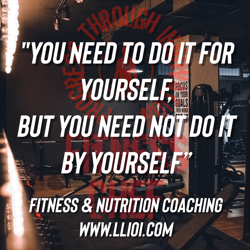During my years as a trainer, the question often posed to me is “what should I be eating before and after my workouts?” This is a great question because it is important to fuel your body with the right nutrients to get the most out of your workout. In this month’s blog, I will tell you why pre- and post-workout nutrition is a key factor in fitness goal achievement and how pre-exercise meals differ from post-exercise meals.
However, before we get into the specifics of what to eat in a pre- and post-workout meal, let’s break down the macronutrients that make up an individual’s diet. A macronutrient is simply a nutrient required in significant amounts of the human diet. I would argue the most famous macronutrient of all, and the nutrient that receives the most press, are carbohydrates. Carbohydrates come in many forms and all forms do a very significant thing for our body, PROVIDE ENERGY. Carbohydrates are what allow our bodies to continue to move throughout the day and are the only nutrient that can pass the blood-brain barrier to supply the brain with fuel (other than ketones, but we will not get into the science of that in this article).
Carbohydrates or “carbs” have received a very bad reputation in the public media because fad diets ask individuals to cut carbs in order for an individual to lose weight. I will tell you this today and for the rest of my life, carbohydrates are essential to the human body and should never be completely cut out of a diet without the supervision of a registered dietitian or physician. Carbs should make up 50-65% of an individuals diet, and choosing the right carbs is the key factor in creating a healthy diet.
Next up, protein. Protein tends to be the macronutrient everyone has their own opinion on because protein is viewed as a healthy dietary supplement. However, protein provides the same kilocalories per gram as carbohydrates do (4kcal/g) and when it is taken in excess can be stored as fat (just like a carbohydrates) in the body. Protein, on the other hand, is essential in the body for different reasons than carbohydrates; protein allows the body to rebuild itself after workouts break our muscles down. Protein is the building block for muscle and is made up of amino acids that perform many different duties such as carrying oxygen to the muscle, catalyzing reactions and allowing for muscles to contract. Protein can come from animal and plant origins, but in order to receive all 20 (or 21 depending on who you ask) essential amino acids, one must eat a healthy serving of both plant and animal source protein. Vegetarians should meet with a registered dietitian to ensure they are receiving all their essential amino acids in their diet. The recommended intake for protein is 10-35% of an individual’s diet.
Read the rest here

